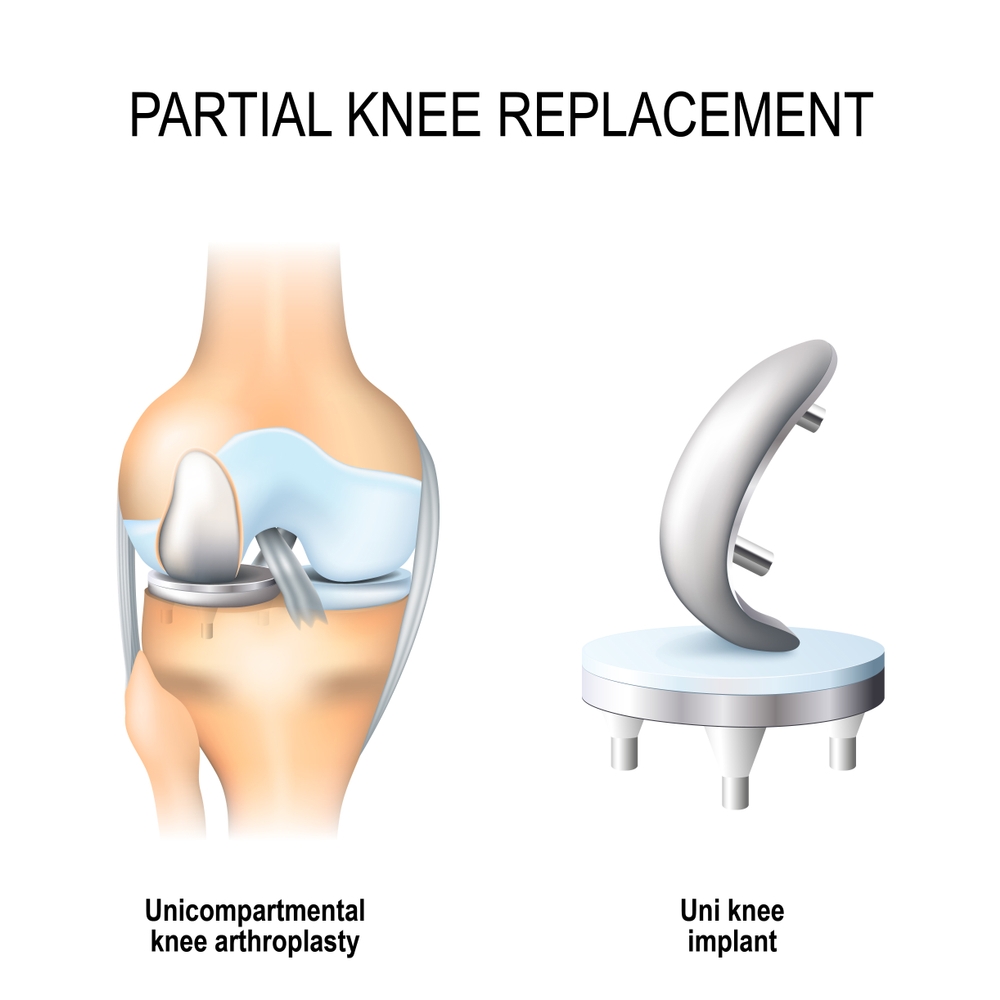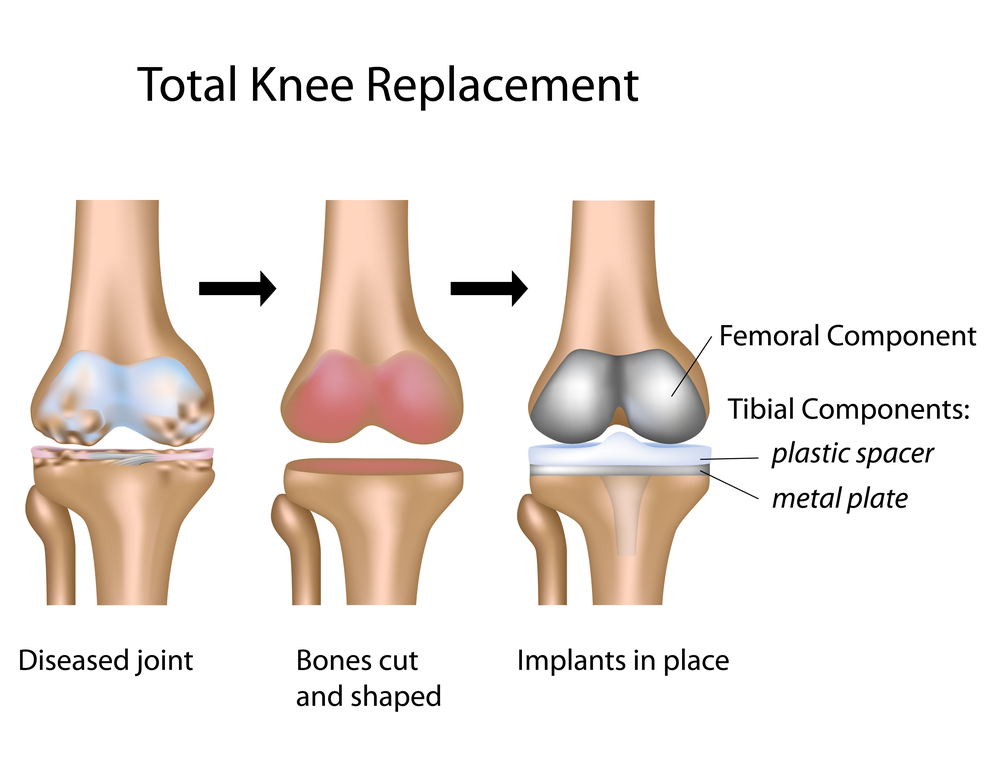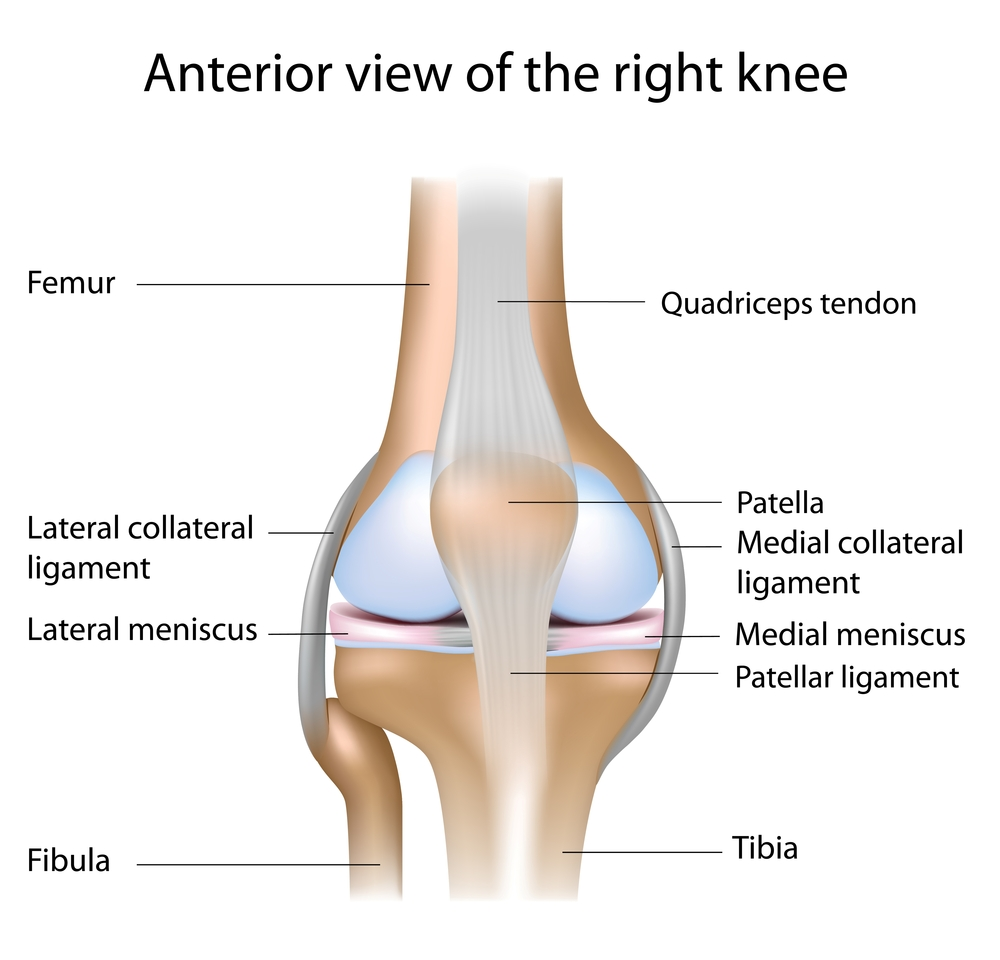What is Knee Replacement Surgery?
Knee replacement surgery also known as knee arthroplasty is surgical procedure performed to ease pain & restore the function of the knee joint. Knee replacement involves replacing of broken or severely injured, diseased & impaired knee with an artificial joint made up of metal & plastic component.

Types of Knee replacement surgery
Depending on the severity of damage & scope for full restoration, knee replacement surgery is classified into 2 types
Partial Knee Replacement

Partial knee replacement is usually alternative to total knee replacement when the damage is limited to only a selective compartment if the knee. Partial knee replacement is frequently conducted to treat patients with osteoarthritis of the knee.
Total Knee Replacement
Total knee replacement surgery is performed when the whole joint is severely damaged & patient experiences progressive pain.

Should you undergo partial knee replacement or total knee replacement?
The knee joint is the largest joint in the body & made up of three compartments

- Medial compartment
- Lateral compartment
- Patellofemoral compartment.
Patient with osteoarthritis or knee damage may have only one compartment of the knee affected. Osteoarthritis most regularly affects only the medial compartment of the knee joint. In such circumstance, partial knee replacement is to be performed.
Total knee replacement comes in picture when all the three compartments of knee joint are damaged and replacing just partially won’t relive the pain.
Consult an orthopedic & joint replacement surgeon for accurate diagnosis of the joint damage & doctor will assist you in the total knee replacement vs partial knee replacement choice.
Why do you need a knee replacement?
Some of the general causes that may make you opt for this particular surgery are:
- Rheumatoid Arthritis – It is autoimmune arthritis caused due to improper functioning of the immune system. Swelling & pain is observed in the joint of patients
- Gout – Disorder which involves forming of small crystals inside the joint.
- Hemophilia – Hemophilia is a rare disease in which blood doesn’t clot normally because of depletion of adequate blood-clotting proteins (clotting factors) (please check if this point is right)
- Severe Knee Injuries caused due to accidents
- Bone Dysplasias – Disorders that induce unusual bone growth
- Death of bone in the knee joint following blood supply problems(Avascular Necrosis)
- Knee deformity with pain and loss of cartilage.
- Unusual growth of bones in the knee joint.
How long do you stay in the hospital after a knee replacement?
The patient is usually made to stay in the hospital at least for 2-3 days after undergoing knee replacement surgery.
How long does it take to recover from a knee replacement?
Initially, for at least 2 months the patient may need the support of crutches while walking. Additionally, you may require to perform gentle knee strengthening exercise. Up to 3 months are expected for entire recovery from knee replacement surgery.
What is the best age to have a knee replacement?
Knee replacement is more common among people of 60 yrs – 80yrs age group but recently even younger people are undergoing knee replacement surgery.
Specifically, partial knee replacement is frequently favored in the younger population as their recovery is quicker and often with much-limited discomfort.
One should not forget that durability of the artificial knee joint is around 20 years, provided the knee is well cared for. Undergo surgery at a very early age increases the chances of second surgery i.e revision total knee replacement.